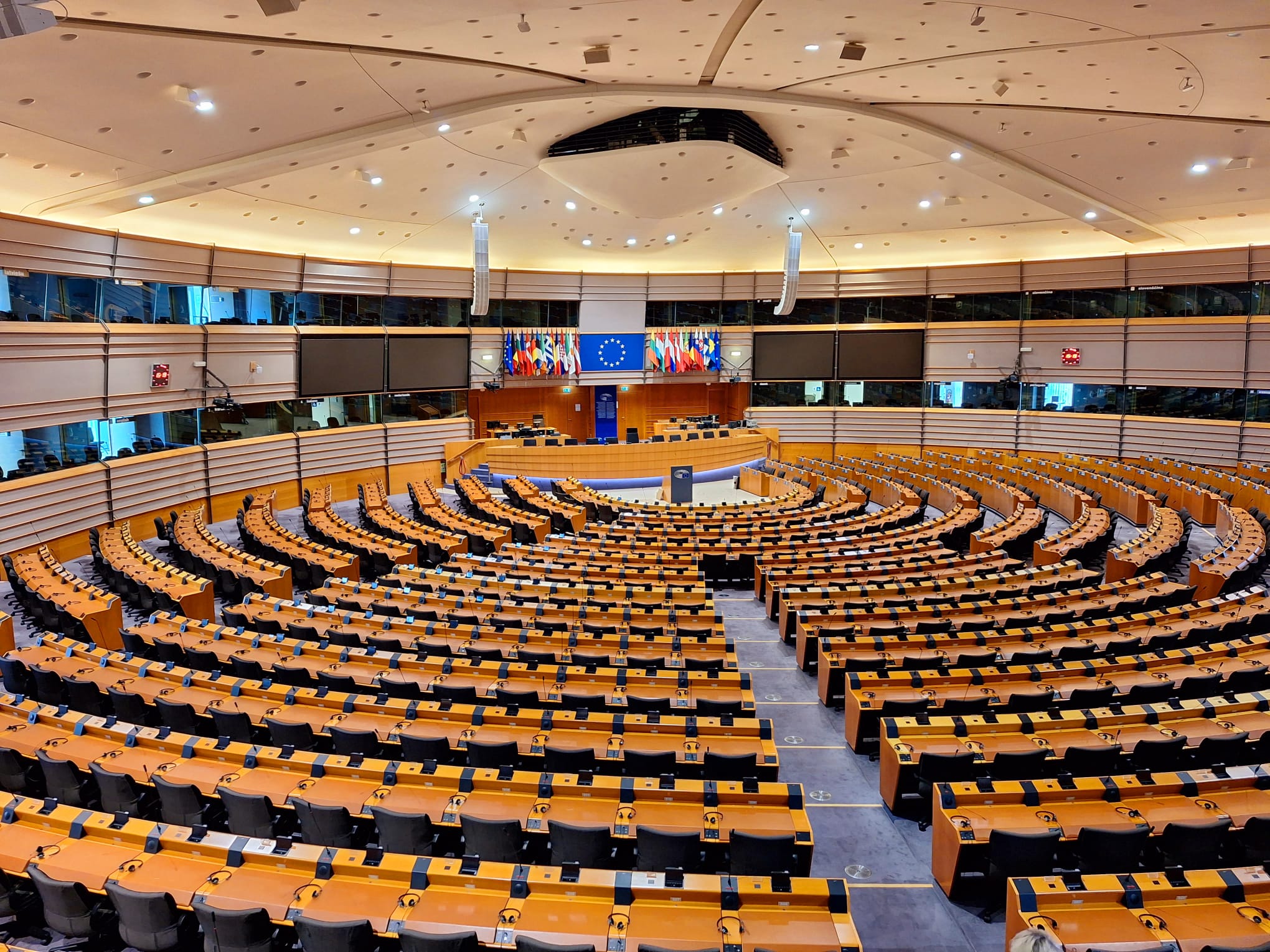
This is the English translation of a Turkish language article that was originally published by AVİM on 15 September 2025.
On 11 September 2025, the European Parliament (EP) rejected an amendment proposed by the Left Group that sought to designate Israel’s actions in Gaza as “genocide” and urged the EU to cease all forms of assistance enabling such atrocities[1], with 171 votes in favor, 378 against, and 34 abstentions[2]. The amendment, part of a non-binding resolution on Gaza, was opposed by the center-right European People’s Party, the liberal Renew Europe group, and most of the far-right factions. Despite this rejection, a resolution that was adopted called for an immediate ceasefire, an end to Israel’s humanitarian aid blockade, and the release of hostages held by Hamas. While the International Association of Genocide Scholars and certain EU officials have labeled the situation in Gaza as genocide, the EP’s refusal to officially adopt this term raises serious concerns about political interests superseding international legal norms and fuels debates over double standards.
The EP’s approach to the term “genocide” stands at the intersection of international law and politics and sparks significant debates. Defined under the 1948 Genocide Convention, “genocide” refers to acts committed with the intent to destroy, in whole or in part, a national, ethnic, racial, or religious group. This legal concept carries binding consequences only when affirmed by international courts. However, the EP’s contradicting approaches to the 1915 Events and the ongoing Gaza crisis highlight the politicization of law and accusations of double standards. This analysis aims to demonstrate that the EP’s designation of the 1915 events as “genocide” while refraining from applying the same term to Gaza is shaped by political interests in contravention of international legal norms, constituting a significant inconsistency from the perspective of Republic of Türkiye’s interests.
The Events of the First World War and the European Parliament’s Genocide Designation
In 1987[3] and 2015, the EP adopted resolutions labeling the relocation and claimed massacres of Armenians in 1915 during the Ottoman Empire period as “genocide.” These resolutions, however, lack the backing of any competent international court ruling, such as from the International Court of Justice (ICJ). The crime of genocide requires clear evidence of intent, yet the claimed intent behind the 1915 events remains a matter of contention among historians and legal scholars. Türkiye maintains that these events occurred under the chaotic conditions of the First World War with no systematic intent to annihilate and with mutual suffering on all sides. Nevertheless, the EP’s non-binding resolutions appear to have been influenced by factors such as the Armenian diaspora’s lobbying efforts, the human rights discourse in Europe, and political tools aimed at exerting pressure on Türkiye, rather than a robust legal foundation.
The EP’s approach is problematic as it employs one of international law’s gravest accusations—genocide—without sufficient evidence or judicial ruling. This stance aims to tarnish the international reputation of the Ottoman Empire and, by extension, its successor state, the Republic of Türkiye, while exemplifying the use of historical issues as political instruments. Türkiye has repeatedly stated that these resolutions lack impartiality and negatively impact EU-Türkiye relations. The EP’s transformation of a legal concept into a political narrative undermines international legal norms and erodes trust between states.
The Gaza Crisis and the European Parliament’s Reluctance
The ongoing conflict in Gaza since 7 October 2023 presents another critical case testing the international community’s approach to the concept of genocide. With over 60,000 Palestinians killed, humanitarian aid systematically obstructed, and widespread famine and starvation, the crisis has been supported by the International Court of Justice’s (ICJ) 2024 preliminary finding of a “plausible” case of genocide. Additionally, the International Criminal Court (ICC) has issued arrest warrants for Israeli Prime Minister Benjamin Netanyahu and other officials on charges of war crimes and deliberate starvation policies. Organizations such as Amnesty International, Human Rights Watch, and the International Association of Genocide Scholars have stated that Israel’s actions in Gaza meet the legal definition of genocide. Yet, in September 2024, the EP rejected an amendment labeling the situation as “genocide” (378 against 171).
The EP’s reluctance to officially adopt the term “genocide” for Gaza represents a clear double standard. Israel’s close economic, political, and strategic ties with the EU, coupled with the historical guilt of certain leading EU member states, are primary drivers of this cautious stance. Since Israel is a significant EU trade partner and regional ally, labeling this country’s actions in Gaza as genocide would risk straining EU-Israel relations. Furthermore, Israel’s “counter-terrorism” narrative and Hamas’s 7 October 2023 attacks render the issue of intent contentious for some EP members, pointing to a political rather than legal assessment.
Double Standards and the Separation of Law and Politics
The inconsistency between the EP’s approaches to the 1915 events and the Gaza crisis is a stark illustration of the entanglement of international law and politics. The 1915 events, as a historical matter, pose minimal political risk for the EP, as the Ottoman Empire no longer exists and Türkiye is not an EU member but a candidate country. Thus, the EP could adopt the “genocide” label without a judicial ruling, assuming a political stance. In contrast, Gaza is an ongoing crisis and Israel’s strong lobbying within the EU and geopolitical interests compel the EP toward a more cautious approach. This contravenes the principle of applying law universally and impartially.
From the Republic of Türkiye’s perspective, the EP’s resolutions on the 1915 events are seen as an instrument to distort historical realities and weaken Türkiye’s international standing. Conversely, the EP’s reluctance to label Gaza’s situation as genocide casts doubt on the sincerity and credibility of the EU’s human rights and international law rhetoric. The common thread in both cases is that the EP’s decisions are driven by political motivations rather than legal rigor, undermining the principles of credibility and consistency in international relations.
The Republic of Türkiye, as a state committed to international legal norms, maintains that grave accusations such as genocide must be substantiated by competent international courts and robust evidence. The EP’s designation of the 1915 events as genocide is viewed as an unjust accusation against Türkiye’s historical and national identity, leading to a loss of trust in EU-Türkiye relations. Similarly, the EP’s reticence regarding Gaza conflicts with Türkiye’s advocacy for the rights of the Palestinian people and regional stability. Türkiye demands that the situation in Gaza should be addressed justly within the framework of international law, with accountability for those responsible.
The European Parliament’s designation of the 1915 events as “genocide,” while refraining from applying the same term to the Gaza crisis, exemplifies the politicization of international law and overt double standards. The resolutions on the 1915 events, lacking a legal basis, unjustly accuse the Ottoman Empire and its successor state, Türkiye, while the humanitarian crisis in Gaza is overlooked due to geopolitical interests. This inconsistency not only undermines the EP’s credibility but also erodes international legal norms. In essence, the sole consistency in the EP’s decisions on the 1915 events and the Gaza crisis lies in the primacy of political interests over legal principles.
[1] Manus Carlisle, “European Parliament finally calls it what it is – Genocide,” The Left, left.eu, 13 June 2025, https://left.eu/european-parliament-finally-calls-it-what-it-is-genocide/.
[2] Nikolaj Nielsen. “Most MEPs vote against describing Gaza as genocide,” EU Observer, euobserver.com, 11 September 2025, https://euobserver.com/eu-and-the-world/ar9ddd036f.
[3] Soner Karagül, “Avrupa Birliği ve Ermeni Sorunu,” ERAREN, eraren.org, Winter 2003, https://www.eraren.org/index.php?Lisan=tr&Page=DergiIcerik&IcerikNo=144.
© 2009-2025 Center for Eurasian Studies (AVİM) All Rights Reserved
No comments yet.
-
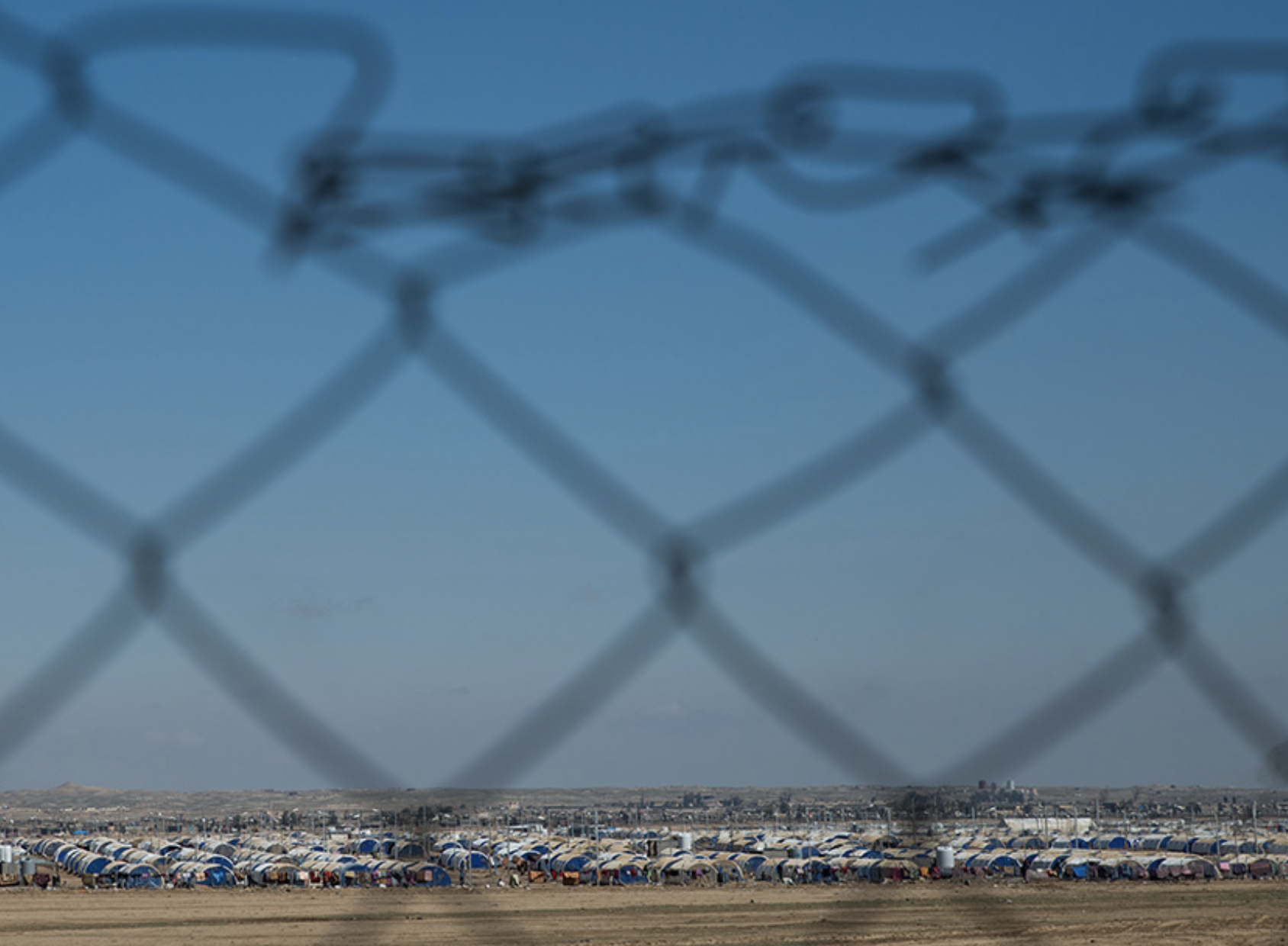 THE EU DISCARDS THE IRREGULAR MIGRATION ISSUE IN THE MEDITERRANEAN - 2
THE EU DISCARDS THE IRREGULAR MIGRATION ISSUE IN THE MEDITERRANEAN - 2
Hazel ÇAĞAN ELBİR 08.08.2023 -
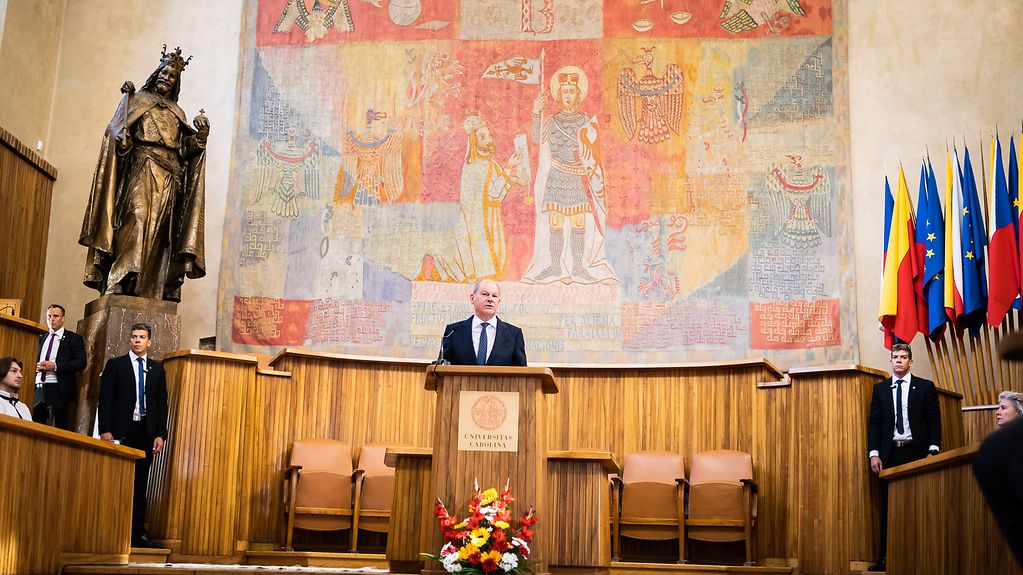 SCHOLZ'S DREAMS OF AN EU WITHOUT TURKEY
SCHOLZ'S DREAMS OF AN EU WITHOUT TURKEY
Hazel ÇAĞAN ELBİR 07.09.2022 -
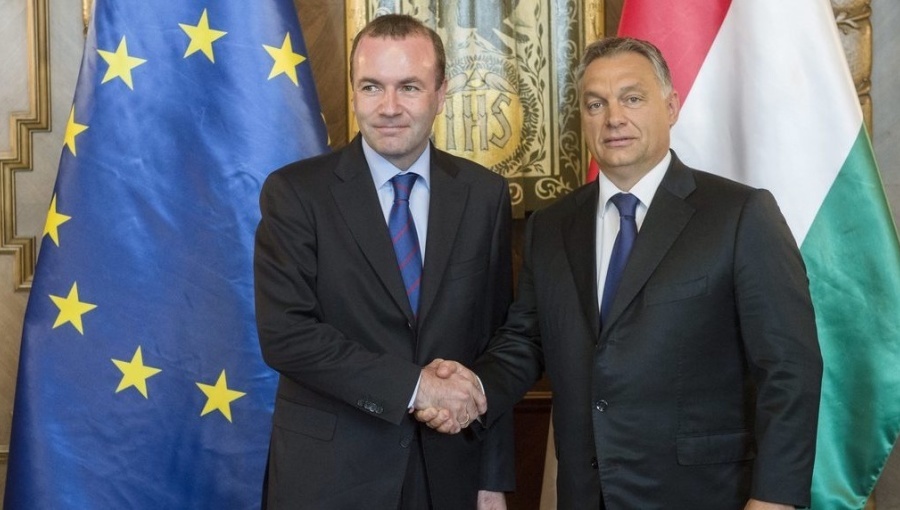 ORBAN AND WEBER CAME TOGETHER IN BUDAPEST
ORBAN AND WEBER CAME TOGETHER IN BUDAPEST
Hazel ÇAĞAN ELBİR 19.03.2019 -
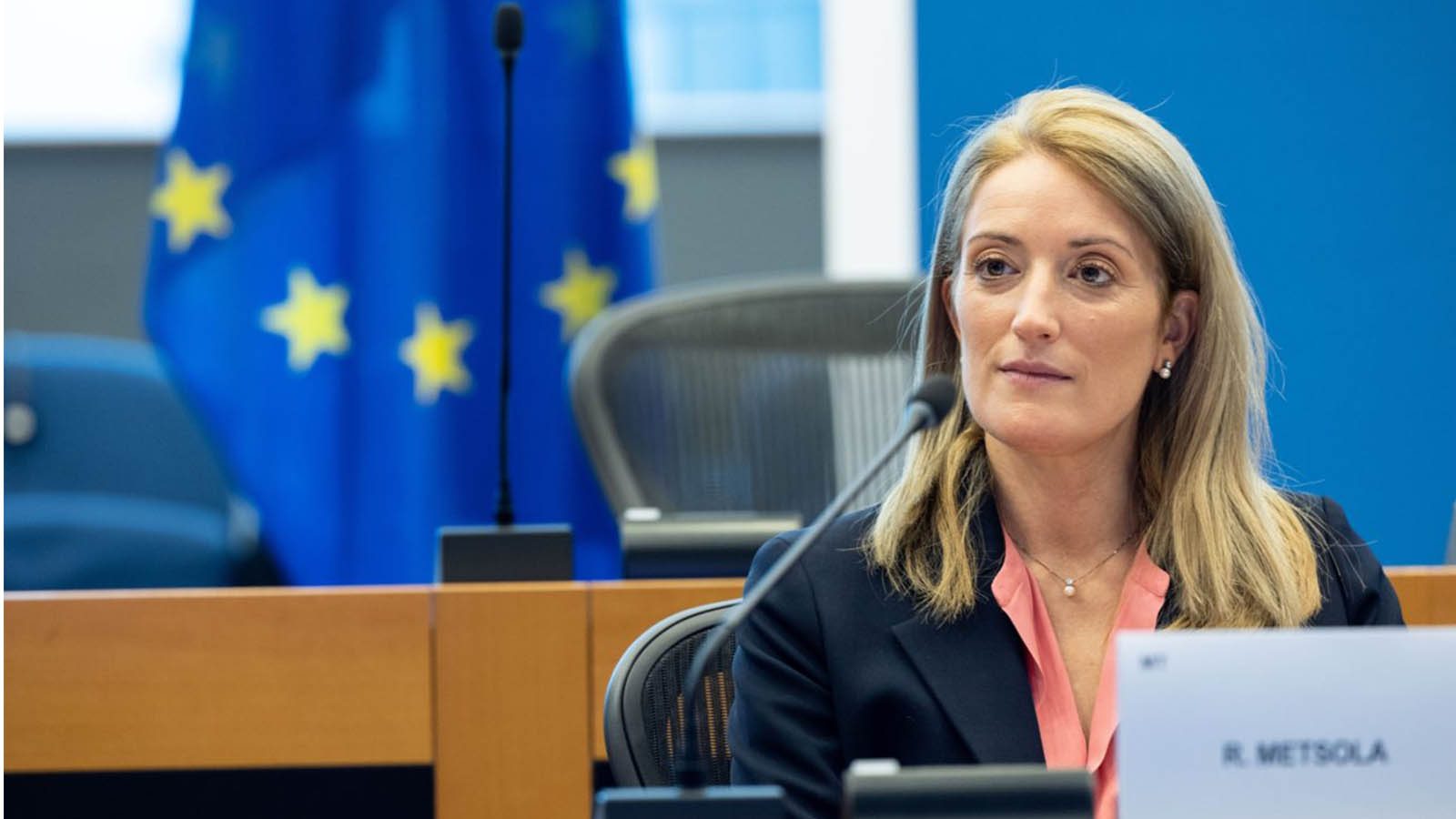 THE NEW PRESIDENT OF THE EUROPEAN PARLIAMENT AND EUROPE'S FREEDOM VALUES
THE NEW PRESIDENT OF THE EUROPEAN PARLIAMENT AND EUROPE'S FREEDOM VALUES
Hazel ÇAĞAN ELBİR 11.02.2022 -
 FRANCE'S FREEDOM RECORD ACCORDING TO THE US COMMISSION ON INTERNATIONAL RELIGIOUS FREEDOM
FRANCE'S FREEDOM RECORD ACCORDING TO THE US COMMISSION ON INTERNATIONAL RELIGIOUS FREEDOM
Hazel ÇAĞAN ELBİR 17.08.2023
-
 WHAT DID THE FRENCH PRESIDENT IMPLY WITH THE “ARMENIAN FILE”
WHAT DID THE FRENCH PRESIDENT IMPLY WITH THE “ARMENIAN FILE”
AVİM 22.02.2018 -
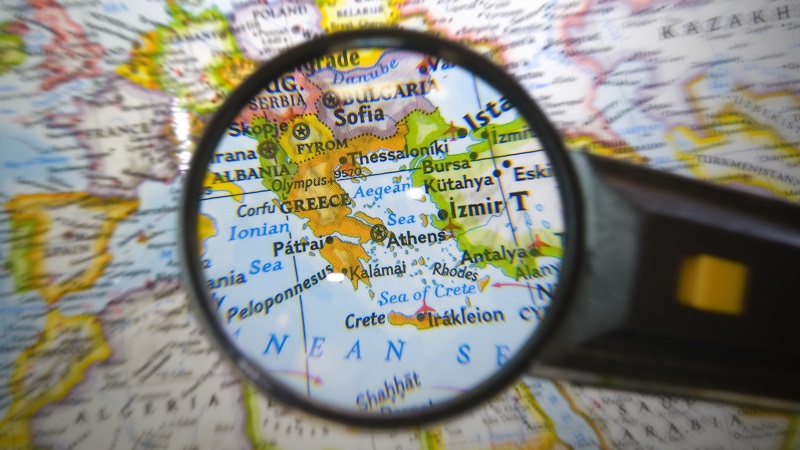 EASTERN BALKANS: TURKEY
EASTERN BALKANS: TURKEY
Vuslat Nur ŞAHİN 29.03.2019 -
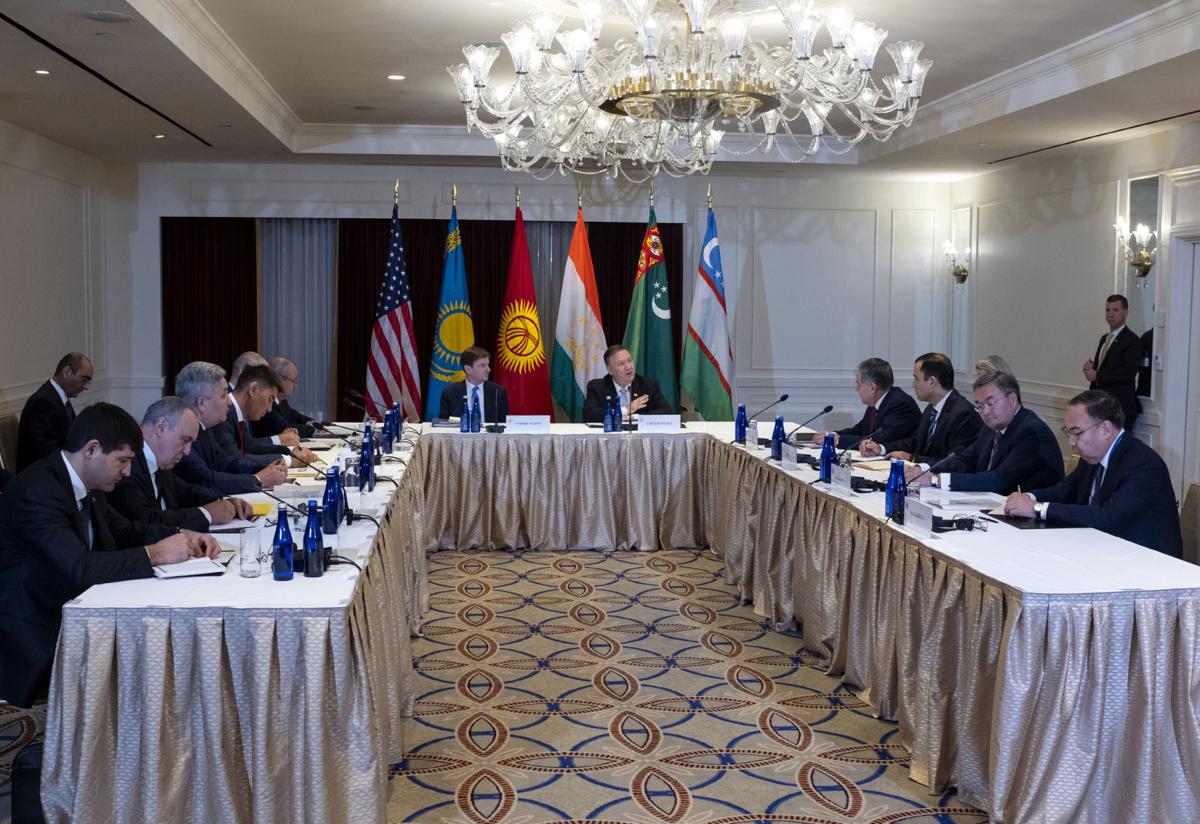 CENTRAL ASIAN COUNTRIES SHOULD OPEN UP TO THE WORLD
CENTRAL ASIAN COUNTRIES SHOULD OPEN UP TO THE WORLD
Ceyda ACİCBE 09.10.2019 -
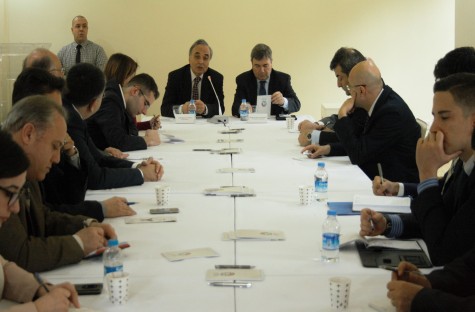 AVİM HELD A CONFERENCE ON MONGOLIA’S POTENTIAL IN THE REGION, THE CURRENT SITUATION IN MONGOLIA PRIOR TO THE 11TH ASIA-EUROPE MEETING (ASEM) AND TURKISH-MONGOLIAN RELATIONS
AVİM HELD A CONFERENCE ON MONGOLIA’S POTENTIAL IN THE REGION, THE CURRENT SITUATION IN MONGOLIA PRIOR TO THE 11TH ASIA-EUROPE MEETING (ASEM) AND TURKISH-MONGOLIAN RELATIONS
AVİM 18.01.2016 -
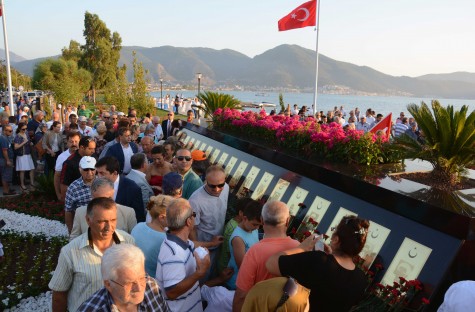 MONUMENT ERECTED IN FETHIYE FOR TURKISH DIPLOMATS ASSASSINATED BY ARMENIAN TERRORISM
MONUMENT ERECTED IN FETHIYE FOR TURKISH DIPLOMATS ASSASSINATED BY ARMENIAN TERRORISM
Ali Murat TAŞKENT 01.09.2015
-
25.01.2016
THE ARMENIAN QUESTION - BASIC KNOWLEDGE AND DOCUMENTATION -
12.06.2024
THE TRUTH WILL OUT -
27.03.2023
RADİKAL ERMENİ UNSURLARCA GERÇEKLEŞTİRİLEN MEZALİMLER VE VANDALİZM -
17.03.2023
PATRIOTISM PERVERTED -
23.02.2023
MEN ARE LIKE THAT -
03.02.2023
BAKÜ-TİFLİS-CEYHAN BORU HATTININ YAŞANAN TARİHİ -
16.12.2022
INTERNATIONAL SCHOLARS ON THE EVENTS OF 1915 -
07.12.2022
FAKE PHOTOS AND THE ARMENIAN PROPAGANDA -
07.12.2022
ERMENİ PROPAGANDASI VE SAHTE RESİMLER -
01.01.2022
A Letter From Japan - Strategically Mum: The Silence of the Armenians -
01.01.2022
Japonya'dan Bir Mektup - Stratejik Suskunluk: Ermenilerin Sessizliği -
03.06.2020
Anastas Mikoyan: Confessions of an Armenian Bolshevik -
08.04.2020
Sovyet Sonrası Ukrayna’da Devlet, Toplum ve Siyaset - Değişen Dinamikler, Dönüşen Kimlikler -
12.06.2018
Ermeni Sorunuyla İlgili İngiliz Belgeleri (1912-1923) - British Documents on Armenian Question (1912-1923) -
02.12.2016
Turkish-Russian Academics: A Historical Study on the Caucasus -
01.07.2016
Gürcistan'daki Müslüman Topluluklar: Azınlık Hakları, Kimlik, Siyaset -
10.03.2016
Armenian Diaspora: Diaspora, State and the Imagination of the Republic of Armenia -
24.01.2016
ERMENİ SORUNU - TEMEL BİLGİ VE BELGELER (2. BASKI)
-
AVİM Conference Hall 24.01.2023
CONFERENCE TITLED “HUNGARY’S PERSPECTIVES ON THE TURKIC WORLD"









